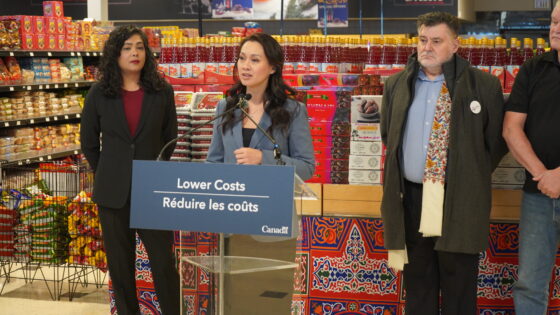on
BY SIMONE J. SMITH
“I decided to leave aside my well-prepared speech because …yesterday I was watching the silent TV in the leaders’ lounge, where the organizers have thoughtfully added green plants above the comfortable couches.
“People there eat, drink, meet, and take photos together, while images of voiceless speeches from leaders play on and on and on in the background.
“To me, this seems exactly like what happens in the real world every day. Life goes on with its old habits, and our speeches, filled with good words about fighting climate change, change nothing.”
ALBANIA PRIME MINISTER EDI RAMA
“We have a clear choice between a safer, cleaner, fairer future and a dirtier, more dangerous, and more expensive one. We know what to do. Let’s get to work. Let’s get it done.”
U.S. CLIMATE ENVOY JOHN PODESTA
“Already, catastrophic climate events worldwide have led to significant loss of life, property, and infrastructure. And yet, we persist in responding to these events as though they are merely unfortunate, isolated, and national incidents. I ask you to look beyond borders, beyond flags: the fires that devour your forests and the hurricanes that devastate our homes are not distant misfortunes but shared tragedies.”
“What we endure, you endure. What we lose, you lose. And if we fail to act, it will be our children and grandchildren who bear the burden, their dreams reduced to memories of what could have been.”
BAHAMAS PRIME MINISTER PHILIP DAVIS
“We’ve been sold a lie, a carefully crafted narrative that absolves the powerful and blames the powerless. Our leaders, cloaked in righteousness, preach about climate change, inequality, and corruption while their actions directly contradict their words. What I am going to share with you will expose how they indulge in lavish lifestyles, fund wars, and exploit resources, all while pointing fingers at us, the ordinary citizens. It’s time to rip off the veil of deception. We must acknowledge the hypocrisy, the double standards, and the blatant disregard for the well-being of our planet. We are not the problem; they are.”
In March 2024, the State of the Global Climate Report was launched, and below are some of the items we as global citizens were told that we need to be aware of:
Earth’s issuing a distress call. The latest State of the Global Climate report shows a planet on the brink.
Fossil fuel pollution is sending climate chaos off the charts. Sirens are blaring across all major indicators: Last year saw record heat, record sea levels and record ocean surface temperatures. Glaciers likely lost more ice than ever before.
Some records aren’t just chart-topping, they’re chartbusting. Changes are speeding up. Sea level rises are accelerating — threatening coastal communities. And last September, Antarctic Sea ice was 1 million square kilometers smaller than the previous record low for the time of year. That’s an area almost 25 times the size of Switzerland. The impact of all this is stark, brutal and accelerating with a deadly force.
The report from the World Meteorological Organization details extreme weather around the world in 2023, and the trail of destruction left in its wake: Thousands killed, millions displaced, crops failing and vast economic losses.
While the rest of us sip on soggy paper straws and grapple with increasingly frequent natural disasters, the uber rich are apparently running errands in their private jets.
According to a recent study published in the journal Communications Earth & Environment, ~19% of private flights cover less than 200 km and ~50% are shorter than 500 km.
Who’s to blame? Recent reports are showing that a small group of ~256k jetsetters, or 0.003% of the global adult population, many of whom are among America’s wealthiest: 69% of private jets are registered in the US.
About a quarter million of the super wealthy — worth a total of $31 trillion — last year emitted 17.2 million tons (15.6 million metric tons) of carbon dioxide flying in private jets, according to a study in the Nature journal Communications Earth & Environment. That’s about the same amount as the 67 million people who live in Tanzania,
Private jet emissions jumped 46% from 2019 to 2023, according to the European research team that calculated those figures by examining more than 18.6 million flights of about 26,000 airplanes over five years.
Only 1.8% of the carbon pollution from aviation is spewed by private jets and aviation as a whole is responsible for about 4% of the human-caused heat-trapping gasses, the study said.
“It may seem like a small amount, but it’s a matter of fairness and priorities,” said the study’s lead author, Stefan Gossling, a transportation researcher at the business school of Sweden’s Linnaeus University.
“The damage is done by those with a lot of money and the cost is borne by those with very little money,” Stefan explains.
The highest emitting private jet user that the team tracked — but did not identify by name — spewed 2,645 tons (2,400 metric tons) of carbon dioxide in plane use. That’s more than 500 times the global per person average of either 5.2 tons (4.7 metric tons) that the World Bank calculates or the 4.7 tons (4.3 metric tons) that the International Energy Agency figures.
“This report presents further proof that billionaires are causing the climate crisis,” said Jonathan Westin, executive director of the advocacy organization Climate Organizing Hub. “They are clinging to their private jets and oil profits while regular people see increasing floods, hurricanes and wildfires.”
“It’s a grim joke that the billionaire class is flying private jets to the annual climate conferences, and the United Nations should crack down on this hypocritical practice,” said Jean Su, energy justice director for the Center for Biological Diversity.
It’s infuriating to be lectured about our carbon footprint while witnessing the lavish lifestyles of those preaching sustainability. Private jets, sprawling mansions, and endless consumption fly in the face of their demands for sacrifice.
They lecture us about plastic straws while corporations dump millions of tons of plastic into our oceans. It’s a grotesque display of hypocrisy, where the privileged few demands austerity from the masses while exempting themselves from the very rules they impose.
We are expected to sacrifice our lifestyles, our livelihoods, and our freedoms in the name of “climate change.” Yet, the same demands are not placed on the global elite who profit from the very systems they claim to want to dismantle.
It seems the only ones expected to change are the ordinary people, the ones who can least afford it. This hypocrisy is a slap in the face to those who genuinely care about the environment. It’s time for accountability, not empty rhetoric. If we are all in this together, then let us all bear the burden.
REFERENCES:
https://www.pbs.org/newshour/science/carbon-pollution-from-high-flying-rich-in-private-jets-soars
Stay in the loop with exclusive news, stories, and insights—delivered straight to your inbox. No fluff, just real content that matters. Sign up today!
We, as humans are guaranteed certain things in life: stressors, taxes, bills and death are the first thoughts that pop to mind. It is not uncommon that many people find a hard time dealing with these daily life stressors, and at times will find themselves losing control over their lives. Simone Jennifer Smith’s great passion is using the gifts that have been given to her, to help educate her clients on how to live meaningful lives. The Hear to Help Team consists of powerfully motivated individuals, who like Simone, see that there is a need in this world; a need for real connection. As the founder and Director of Hear 2 Help, Simone leads a team that goes out into the community day to day, servicing families with their educational, legal and mental health needs.Her dedication shows in her Toronto Caribbean newspaper articles, and in her role as a host on the TCN TV Network.













